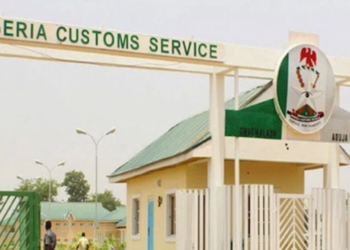The Federal Government has ordered that fuel stations close to the land borders should no longer get petroleum products. The directive is coming at a period government is tightening security and ensuring strict compliance to the border closure.
The directive was issued to the Nigeria Customs Service manning the land borders across Nigeria. The Customs Comptroller General, Hameed Ali, in a statement seen and obtained by Nairametrics, said that no petroleum product no matter the tank size should be permitted to be discharged in any of those filling stations. The affected oil companies are those located 20 kilometres to the borders.
Nairametrics had reported that the Nigerian Government was doubling down on its decision to keep the borders closed after it was announced that the closure would continue till January 2020. President Muhammadu Buhari approved the extension of the closure, stating that the need to achieve the strategic objectives of the exercise informed the decision.
Ali stated that, “The Comptroller-General of Customs has directed that henceforth no petroleum product no matter the tank size is permitted to be discharged in any filling station with 20 kilometres to the border.”
“Consequently, you are all to ensure strict and immediate compliance, please,” he added.

Why filling stations won’t get fuel: The filling stations located close to the borders have been accused of illegal export of petroleum products. In April 2019, Nairametrics reported that a tripartite committee consisting of the Nigerian National Petroleum Corporation (NNPC), Nigeria Customs Service (NCS), and the Department of Petroleum Resources (DPR), was set up to tackle the growing smuggling of petroleum products to neighbouring countries.
The committee reported that some unlicensed filling stations along the borderline had been identified as being responsible for the smuggling of petroleum products. Recall that the border closure was prompted by rice and fuel smuggling activities. So with the new directive, the Federal Government is trying to block every loophole that could affect the positive impact expected from the border closure.
Countries like Benin and Ghana have pleaded with the Nigerian Government to open the borders as the impact has snowballed into a larger problem that isn’t connected to rice and fuel. Other businesses have also been affected.
Problem with the decision: The decision to stop distributing petroleum products to the filling stations close to the border could affect their daily operation and threaten the existence of the oil companies.
When there’s no longer fuel for the filling stations to meet the demand of their teeming customers, they could be forced to downsize and shut down operation. Already, non-oil companies are being affected. Nairametrics had reported how the border closure affected affecting revenue of So Fresh and hair products manufacturer, X-Pression. X-Pression has begun to cut its employees size by over 1000.
The Customs boss, however, said Nigerians should endure the pains as it would be for a short-term.






















